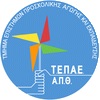Στην προσπάθειά τους να εντάξουν τα ενδιαφέροντα των παιδιών στο πρόγραμμα του νηπιαγωγείου οι εκπαιδευτικοί έρχονται αντιμέτωποι με μια ιδιαίτερη περίπτωση παιχνιδιών, τα παιχνίδια της μαζικής κουλτούρας. Η σχέση των συγκεκριμένων παιχνιδιών με τα μέσα μαζικής επικοινωνίας και ενημέρωσης και τη μαζική κουλτούρα προβληματίζει και ανησυχεί τους εκπαιδευτικούς σε σημείο που απαγορεύουν την είσοδό τους στην τάξη, παρά τον έκδηλο ενθουσιασμό των παιδιών. Προσεγγίζοντας την περίπτωση των αγαπημένων παιχνιδιών των παιδιών από την οπτική της κοινωνιο-πολιτισμικής θεωρίας, η παρούσα εργασία εξετάζει τα βασικά χαρακτηριστικά τους και παρουσιάζει επιχειρήματα υπέρ της ένταξής τους στο πρόγραμμα του νηπιαγωγείου. Επισημαίνονται ιδιαίτερα οι ευκαιρίες που παρουσιάζονται για την ανάπτυξη κριτικού βλέμματος απέναντι στα ΜΜΕ και τα προϊόντα της μαζικής κουλτούρας, η θετική επίδρασή τους στην ανάπτυξη του γραμματισμού, η σημασία και ο ρόλος τους για τις κοινωνικές σχέσεις των παιδιών και η συναισθηματική αξία τους για το παιδί της προσχολικής ηλικίας. Η εργασία τονίζει επίσης ότι, ως αντικείμενα που αντανακλούν τις τρέχουσες κοινωνικές, οικονομικές και τεχνολογικές αλλαγές, τα παιχνίδια της μαζικής κουλτούρας προσφέρονται για να εξετάσουμε τις αντιλήψεις μας για το σύγχρονο παιδικό παιχνίδι και την παιδική ηλικία.
(EL)
The importance of utilizing children’s interests and daily experiences in teaching is well established: students are motivated and learn more quickly and more deeply when what they are taught in school is connected with what they find interesting and relevant.A challenge for educators, when they try to include children’s interests in the curriculum is to select the ‘right’ interests. Often, children’s real interests seem irrelevant or adverse to the goals of the official curriculum. One such case is popular culture toys, children’s favorite toys.Popular culture toys constitute a special case of toys: while children love them, most adults find them unsuitable for children. Their relationship with the media and popular culture makes educators worry about popular toys’ influence not only on play but childhood as well. In addition, as they find it difficult to understand children’s enthusiasm with the specific toys, they choose to ban them from the classroom.As technological, social and cultural changes will continue to influence children’s experiences and toys, the challenge for educators is to create learning environments that allow students to bring their interests and their culture in the classroom while at the same time encourage them to approach the messages they receive with a critical eye.The arguments in favor of integrating popular culture toys in the preschool curriculum do not underestimate educators’ worries or anxieties. It has been proven that these toys attract children for the same reasons they make adults worry while the toys industry knows how to keep children’s fascination with them alive. However, as several studies show, if children’s favorite toys are allowed to come to school, there are benefits for both the curriculum and the students themselves. This is a position that is supported by socio-cultural theory which emphasizes the role children’s everyday experiences and funds of knowledge play in learning. Socio cultural theory also draws our attention to the interdependence of social and individual processes. The choice of socio-cultural theory is not random: in the context of young children’s play, the changing social and technological situation suggests that we need to turn to theories that allow us to understand better how the context shapes children’s interactions and preferences.However, to deal with changes in play we need first of all, to seek children’s own definitions and perspectives of play. This knowledge will help us support play in ways that respond to their needs and interests but most of all, respect their choices.
(EN)

